Refine search
Actions for selected content:
23990 results in Ancient history
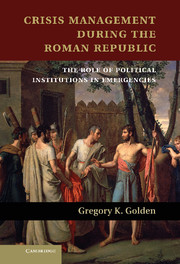
Crisis Management during the Roman Republic
- The Role of Political Institutions in Emergencies
-
- Published online:
- 05 May 2013
- Print publication:
- 22 April 2013
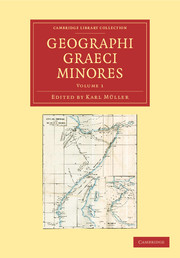
Geographi Graeci minores
-
- Published online:
- 05 May 2013
- Print publication:
- 28 April 2010
- First published in:
- 1855
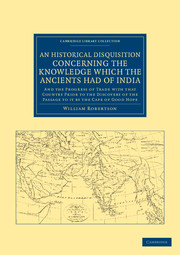
An Historical Disquisition Concerning the Knowledge Which the Ancients Had of India
- And the Progress of Trade with that Country Prior to the Discovery of the Passage to it by the Cape of Good Hope
-
- Published online:
- 05 May 2013
- Print publication:
- 26 April 2012
- First published in:
- 1791
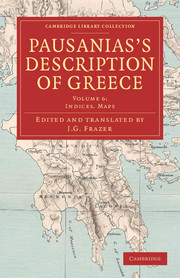
Pausanias's Description of Greece
-
- Published online:
- 05 May 2013
- Print publication:
- 10 May 2012
- First published in:
- 1898
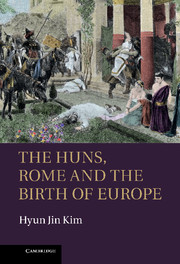
The Huns, Rome and the Birth of Europe
-
- Published online:
- 05 May 2013
- Print publication:
- 18 April 2013
Appendix 5 - Hilary of Poitiers,Contra Auxentium
-
- Book:
- Emperors and Bishops in Late Roman Invective
- Published online:
- 05 May 2013
- Print publication:
- 02 May 2013, pp 252-260
-
- Chapter
- Export citation
Note on the translation
-
- Book:
- The Anonymous Sayings of the Desert Fathers
- Published online:
- 05 May 2013
- Print publication:
- 02 May 2013, pp vii-vii
-
- Chapter
- Export citation
Bibliography
-
- Book:
- Emperors and Bishops in Late Roman Invective
- Published online:
- 05 May 2013
- Print publication:
- 02 May 2013, pp 261-283
-
- Chapter
- Export citation
Acknowledgements
-
- Book:
- Emperors and Bishops in Late Roman Invective
- Published online:
- 05 May 2013
- Print publication:
- 02 May 2013, pp viii-ix
-
- Chapter
- Export citation
Chapter One - Praise and blame in the Roman world
-
- Book:
- Emperors and Bishops in Late Roman Invective
- Published online:
- 05 May 2013
- Print publication:
- 02 May 2013, pp 33-77
-
- Chapter
- Export citation
Emperors and Bishops in Late Roman Invective - Title page
-
-
- Book:
- Emperors and Bishops in Late Roman Invective
- Published online:
- 05 May 2013
- Print publication:
- 02 May 2013, pp iii-iii
-
- Chapter
- Export citation
Appendix 4 - Letters of Eusebius of Vercelli
-
- Book:
- Emperors and Bishops in Late Roman Invective
- Published online:
- 05 May 2013
- Print publication:
- 02 May 2013, pp 242-251
-
- Chapter
- Export citation
Chapter Four - Living up to the past
-
- Book:
- Emperors and Bishops in Late Roman Invective
- Published online:
- 05 May 2013
- Print publication:
- 02 May 2013, pp 178-219
-
- Chapter
- Export citation
Chapter Two - Constructing a Christian tyrant
-
- Book:
- Emperors and Bishops in Late Roman Invective
- Published online:
- 05 May 2013
- Print publication:
- 02 May 2013, pp 78-126
-
- Chapter
- Export citation
Epilogue
-
- Book:
- Emperors and Bishops in Late Roman Invective
- Published online:
- 05 May 2013
- Print publication:
- 02 May 2013, pp 220-229
-
- Chapter
- Export citation
Abbreviations
-
- Book:
- Emperors and Bishops in Late Roman Invective
- Published online:
- 05 May 2013
- Print publication:
- 02 May 2013, pp x-xvi
-
- Chapter
- Export citation
Index
-
- Book:
- The Anonymous Sayings of the Desert Fathers
- Published online:
- 05 May 2013
- Print publication:
- 02 May 2013, pp 646-651
-
- Chapter
- Export citation
Emperors and Bishops in Late Roman Invective - Half title page
-
- Book:
- Emperors and Bishops in Late Roman Invective
- Published online:
- 05 May 2013
- Print publication:
- 02 May 2013, pp i-ii
-
- Chapter
- Export citation
Introduction - The use of abuse
-
- Book:
- Emperors and Bishops in Late Roman Invective
- Published online:
- 05 May 2013
- Print publication:
- 02 May 2013, pp 1-32
-
- Chapter
- Export citation
Appendix 1 - Altercatio Heracliani cum Germinio
-
- Book:
- Emperors and Bishops in Late Roman Invective
- Published online:
- 05 May 2013
- Print publication:
- 02 May 2013, pp 230-237
-
- Chapter
- Export citation
